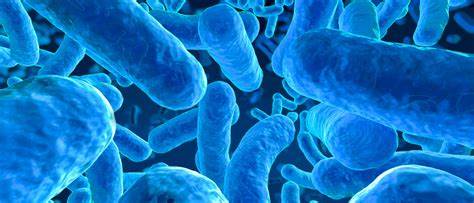Yes, you read that right: fecal transplants could be a new way of reversing aging, at least if the latest rodent research is anything to go by.
As time passes, we’re gaining a much better idea of just how important proper functioning of the gut is to health. The body’s microbiome – the collection of microscopic organisms that inhabit the gut – is often referred to as “the second brain“, because of the wide variety of effects it can have on mental function and wellbeing.
This new research shows that microbes in the guy play a key role in regulating the aging process and that fecal transplants containing beneficial bacteria can reverse deterioration of the gut, eyes and brain.
Prof Simon Carding, from UEA’s Norwich Medical School and head of the Gut Microbes and Health Research Programme at the Quadram Institute, said: “This ground-breaking study provides tantalising evidence for the direct involvement of gut microbes in ageing and the functional decline of brain function and vision and offers a potential solution in the form of gut microbe replacement therapy.”

Fecal transplants: new anti-aging treatment?
We now know that many diseases are associated with changes in the types and behaviour of bacteria, viruses, fungi and other microbes in an individual’s gut.
Some of these changes happen as we get older, adversely affecting metabolism and immunity. These changes have been associated with a wide variety of age-related disorders including inflammatory bowel diseases, and cardiovascular, autoimmune, metabolic and neurodegenerative disorders.
In order to try to understand the effects of these changes in the microbiota as people age, a group of researchers from the Quadram Institute transferred gut microbes from aged mice into healthy young mice; they also performed the same operation in reverse, transferring microbes from young mice into aged mice. The researchers then observed how this affected inflammatory hallmarks of aging in the gut, brain and eye, all of which suffer from deteriorating function in later life.
The researchers discovered that the microbiota from old donors led to a decline in the lining of the gut, which allowed bacterial products to cross into the circulation, triggering the immune system and inflammation in the brain and eyes.
Age-related chronic inflammation has been associated with the activation of specific immune cells in the brain. These cells were also over-activated in the young mice who received a transplant of microbes from aged mice.
In the eye, the team also found specific proteins associated with retinal degeneration were increased in the young mice receiving fecal transplants from old donors.
The researchers discovered that, in old mice, these detrimental changes in the gut, eye and brain could be reversed by transplanting the gut microbiota from young mice.
Take a social-media detox to improve your mental health

One of the simplest ways to improve your well being in 2022 may simply be to stop using social media, if a new study is to be believed.
Researchers from the University of Bath discovered that social media users can sometimes spend up to nine hours on their favorite platforms in a single week.
Previous studies have disputed the negative effects of social media, including the claim that they are addictive for children.
To investigate the effects of detoxing from social media, study authors gathered 154 people between the ages of 18 and 72 who all use social media daily. These people spent around eight hours of their week browsing various social platforms, on average.
After one week of normal use, the team randomly split the participants into one of two groups. The first used social media as normal and the other tried to avoid any social media use for one week.
Click here to read more about the new study
The research team are now working to understand how long these positive effects can last, and to identify the beneficial components of the young donor transplants and how they impact on organs distant from the gut.
The microbiota of young mice, and the old mice who received young microbiota transplants were enriched with beneficial bacteria that have previously been associated with good health in both mice and humans.
The researchers have also analysed the products which these bacteria produce by breaking down elements of our diet. This has uncovered significant shifts in particular lipids (fats) and vitamin metabolism, which may be linked to the changes seen in inflammatory cells in the eye and brain.
Similar pathways exist in humans, and the human gut microbiota also changes significantly in later life, but the researchers caution about extrapolating their results directly to humans until similar studies in elderly humans can be performed.
Lead author of the study, Dr Aimee Parker from the Quadram Institute said: “We were excited to find that by changing the gut microbiota of elderly individuals, we could rescue indicators of age-associated decline commonly seen in degenerative conditions of the eye and brain.
“Our results provide more evidence of the important links between microbes in the gut and healthy ageing of tissues and organs around the body. We hope that our findings will contribute ultimately to understanding how we can manipulate our diet and our gut bacteria to maximise good health in later life.”


Don’t hesitate to email us at [email protected] for personalized coaching and a client questionnaire if you’d like DEDICATED tailor-made personal training on strength training, building muscle, losing fat, developing athleticism, and more — all to your liking, lifestyle, habits, and taste!
Otherwise, don’t forget to claim your FREE eBook detailing how to lose 20lb of fat while building muscle in 12 weeks! You can claim it here.
Alternatively, you can pick up a FREE eBook on fundamental strength principles offering an introductory workout program.











